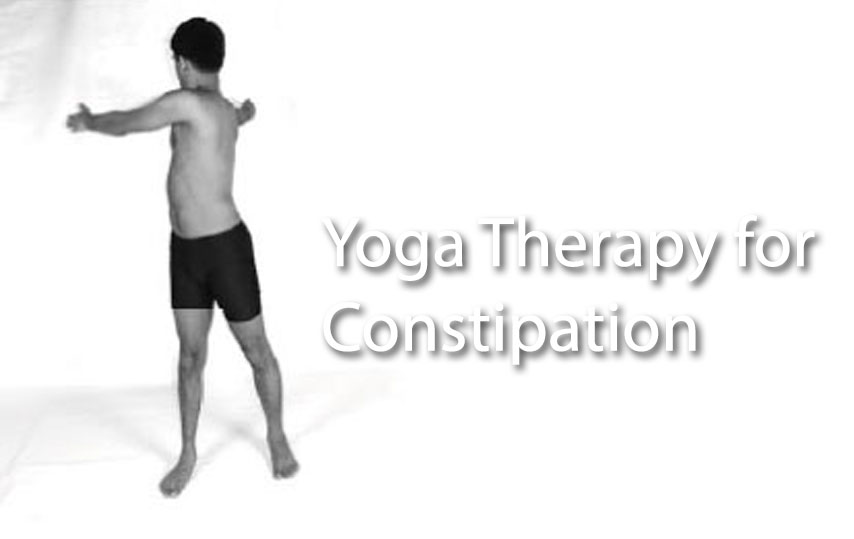What Is Constipation?
The word, “constipation” comes from Latin, constipare, which means “to press, crowd together”. Constipation is also known as costiveness and irregularity.
Constipation is a common condition that affects people of all ages. People suffering from it can neither pass stools regularly nor completely empty their bowels. In other words, constipation implies either infrequent bowel movements or a difficult passage of stools. It is a common gastrointestinal problem.
Normal frequency for bowel movements varies from person to person. Most people only experience constipation for a short time. However, constipation can be a long-term condition for some, causing significant pain and discomfort, thereby affecting their quality of life.
Symptoms
Not having a bowel movement every day does not necessarily mean one is constipated. It depends on the person’s normal bowel habits.
Constipation happens when passing stools becomes more difficult than usual, for example, significantly less frequently, much less effectively or unable to completely empty the bowels.
Symptoms include:
• Needing to open the bowels less often than usual
• Loss of appetite
• Lack of energy
• Hard, dry stools that may be painful to pass
• Straining to pass the motion
• Having to sit on the toilet for much longer than usual
• Abdominal cramps
Causes
Constipation happens when the colon absorbs too much water, or if the muscles in the colon are contracting slowly or poorly so that the stool moves too slowly and loses more water. Constipation occurs when waste or stool moves too slowly through the digestive tract, causing it to become hard and dry.
Most cases of constipation are not caused by a specific condition. It may be difficult to identify the exact cause. However, the following factors increase the chance of constipation:
• Lack of physical activity
• Not enough fiber, such as fruit, vegetables and cereals, in the diet
• A change in routine or lifestyle, such as eating habits • Having limited privacy when using the toilet
• Ignoring the urge to have a bowel movement or delaying it
• Immobility or lack of exercise
• Not drinking enough fluids
• Underweight or overweight
• Anxiety or depression
Yoga Therapy
Practice of asana and kriyas every morning helps to empty out the bowels. Yoga has developed many postures and cleansing techniques for purification of physical body. Through these simple techniques, one is aided in natural elimination of the waste and the mental complaints are relived.
Paschimottanasana (West Body Stretch Pose)

1) Hold the big toes with the hands.
2) Exhale and bend the elbow to the side, extending the spine forward from the pelvis with a straight back.
3) Focus on the abdomen, sucking the naval towards the spine and extend the spine forward. 4) In case the back is humping, keep the knees bent and lean forward on the thighs.
5) Press the thighs to the stomach, stay for about 20-30 seconds in the pose.
It improves the digestion and stimulates excretion
Vakrasana (Sitting twisting Pose)

1) Sit with the legs straight in the front.
2) Keep the left straight and right leg cross over the left shin.
3) Raise the left hand, bend the elbow and press it against the right thigh.
4) Keep the right hand on the floor.
5) Raise your sternum up straight and keep both shoulders level.
6) Squeeze and focus on the abdomen and stay for 20 to 30 seconds.
This pose massages the abdominal organs and improves the flexibility of the spine.
Parsva Halasana (Lateral Plough pose)

1) Start with Halasana with both legs rest behind the head.
2) Walk both legs sideways as far to the right.
3) Tighten both knees, raise the trunk up with the help of the palms and stretch the legs. 4) Stay in this position for half a minute with normal breathing.
5) Repeat the same on the other side.
The colon is exercised properly and elimination will be complete.
Kati Chakrasana (Twisted Mountain pose)

1) Stand in Tadasana with legs hip width apart.
2) Stand straight with palms stretched forward, facing each other.
3) Now twist your body to the right, keeping the position of your feet and legs fixed.
4) Repeat the same on the other side and stay for about 20-30 seconds.
5) Repeat the whole process about eight times.
This pose relieves stiffness in the back and the waist and stimulates elimination.
Tiryaka Bhujangasana (Twisted Cobra Pose)

1) Lie on the floor facing downwards.
2) Stretch your feet backwards with pointed toes.
3) Keep your palms on the sides of the chest; press the palms down and raise your abdomen and chest.
4) Exhale, turn your head and shoulders to the right side, looking at your left feet.
5) Stay for 20-30 seconds and repeat the same on the left side.
6) Repeat the whole process for a few rounds and to your capacity.
This pose squeezes the side waist and the abdomen, stimulating the intestine.
Udarakarshanasana (Abdominal Stretch Pose)

1) Sit in a squatting position with your feet apart.
2) Place your hands on your knees.
3) Turn to the right side, pushing your left knee to the ground.
4) Twist your head and back as far as possible, and gaze at your right shoulder.
5) Stay in this pose for 20-30 seconds and do the same on the other side.
6) Repeat the whole process for a few rounds and to your capacity.
This pose compresses and stretches the digestive organs, nerves and muscles. It relieves constipation by stimulating the large intestine.
Basti Kriya (Colon Cleansing)

1) Sit in a squatting position with your feet apart. Basti means lower large intestine. By creating a vacuum that draws water up like in enema to it, this involves taking water into the bowels. Then perform Uddiyana Bandha and Nauli (contracting the abdomen and isolating the abdomen). These are performed first thing in the morning with an empty stomach.
Basti is a direct method of tackling constipation. If constipation is very bad, then basti is suggested. Water basti can be used to thoroughly clean the bowels.
This strengthens the intestine and relieves constipation. This should be performed with expert guidance, particularly with first timers.
Conclusion
Constipation is considered the mother of several diseases. Just imagine leaving the garbage around you, you feel sick naturally because of the smell, the irritation etc. This is not dissimilar to accumulating waste matters, which create toxins, in your body. If the waste is not eliminated, the body becomes more vulnerable to diseases, thus ruining your health. If the bowels do not move freely, one feels heavy and irritated. As a consequence, the mind becomes dull; the sufferer’s well being is affected
Asanas help us to keep the bowel free, which either maintain or regain good health. When practiced regularly, they keep our mind sharp, the senses keen, and increase the body’s resistance to diseases.
Further, regularizing the diet, drinking sufficient fluids, particularly water, are also an important part to combat constipation.


















 Other
Other
Thanks for this article!